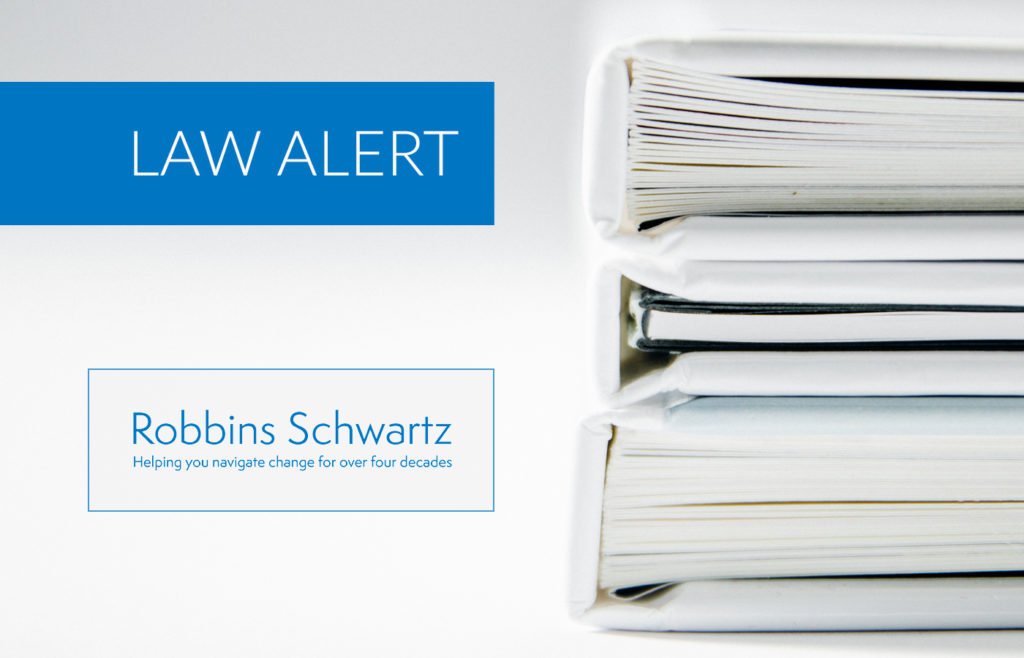Fifth District Appellate Court Rules that the Private Illinois High School Association (“IHSA”) is Not Subject to FOIA

Fifth District Appellate Court Rules that the Private Illinois High School Association (“IHSA”) is Not Subject to FOIA
Jul 11, 2016
Share to:
On June 24, 2016, the Illinois Appellate Court held the Illinois High School Association (IHSA) is not subject to the Freedom of Information Act (FOIA), because the IHSA is a private, not-for-profit entity, independent from its member schools that does not perform a governmental function on behalf of its members. See Better Government Association v. Illinois High School District 230, 2016 IL App (1st) 1511356.
Relevant Facts
The Better Government Association (BGA) issued a FOIA request to the IHSA for certain contracts and licensed vendor applications. In response, the IHSA identified itself as a not-for-profit 501(c)(3) charitable organization, and, as such, it is not a public body subject to FOIA as defined within Section 2(a) of FOIA. Thereafter, BGA submitted a FOIA request to an IHSA member school seeking the same records pursuant to FOIA Section 7(2). [1] The member school responded that it did not possess the requested records.
BGA filed a complaint against IHSA and the member school alleging that both entities violated FOIA. The BGA requested that the court declare IHSA to be a “subsidiary body” under FOIA or declare that IHSA performs a governmental function on behalf of its member schools. BGA also requested that the court order IHSA and the member school to produce the requested documents. The IHSA’s and the member school’s motion to dismiss the complaint was granted by the trial court. BGA filed an appeal with the Illinois Appellate Court for the Fifth District.
The Appellate Court’s Decision
The Appellate Court affirmed the dismissal of the complaint finding that the IHSA is not a “subsidiary body” as that term is defined in FOIA, and IHSA does not perform a governmental function for its member schools which would make certain records subject to FOIA. In determining whether an entity is a “subsidiary body” as defined in FOIA, the Appellate Court utilized the “Rockford Newspapers” test, which instructs courts to consider: (1) whether the entity has a legal existence independent of government resolution; (2) the nature of the functions performed by the entity; and (3) the degree of governmental control exerted.
Applying the first prong of the test, the Appellate Court determined that IHSA has a separate legal existence from its member schools, because it is recognized by the IRS as a 501(c)(3), property-owning charitable organization, it files its own tax returns, has its own federal employer identification number, and is able to sue and be sued in its legal capacity. In considering the second prong of the test, the Appellate Court recognized that the IHSA is an organization that serves member schools, who are both public and private entities, by coordinating sporting events for its member schools. That said, the Appellate Court focused on whether those functions are necessarily governmental and found that they were not. Specifically, the mere fact that a public body could perform the same function of the IHSA (developing, supervising, and promoting interscholastic competitions among member schools), does not diminish the IHSA’s private, independent, not-for-profit status.
After analyzing the IHSA’s by-laws and its general organizational composition under the third prong of the test, the Appellate Court concluded the IHSA was free from governmental control. Important to the Appellate Court’s analysis was the fact that the IHSA is controlled by its own board members and not its member schools. Additionally, the Appellate Court found that the executive director and administrative staff are employees of IHSA and not employees of the member schools or any public body, and, therefore, not subject to regulations of public employees because they are not eligible for state pension or retirement insurance benefits. Further, the Appellate Court concluded that the IHSA does not receive governmental funding, does not charge any of its member schools dues and does not charge schools entry fees for its events. Rather, the IHSA contracts the use of the schools’ facilities, both public and private, and compensates the schools by providing minimum guaranteed fees and splitting any profits in excess of those guarantees.
Finally, the Appellate Court concluded that Illinois High School District 230 did not violate FOIA Section 7(2) when it failed to obtain and produce the requested records maintained by the IHSA since the IHSA is a private, not-for-profit entity, independent of its member schools and does not perform a governmental function on behalf of its member schools.
The Significance of the Court’s Decision
The Appellate Court’s decision establishes that a separate, third-party, not-for-profit, legal entity, working in a non-governmental facet, does not qualify as a subsidiary public body for a school corporation, and, therefore, is not subject to FOIA requests. The decision also highlights the limitations of applying FOIA Section 7(2) to public entities that are members of organizations such as the IHSA.
[1] “A public record that is not in the possession of a public body but is in the possession of a party with whom the agency has contracted to perform a governmental function on behalf of the public body, and that directly relates to the governmental function and is not otherwise exempt under this Act, shall be considered a public record of the public body, for purposes of this Act.” 5 ILCS 140/7(2) (West 2014).
